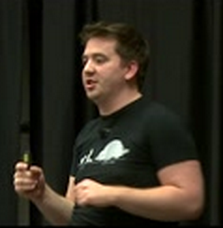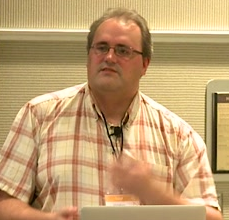CppCon 2014 ODB, Advanced Weapons and Tactics--Boris Kolpackov
 Have you registered for CppCon 2015 in September? Don’t delay – Early Bird registration is open now.
Have you registered for CppCon 2015 in September? Don’t delay – Early Bird registration is open now.
While we wait for this year’s event, we’re featuring videos of some of the 100+ talks from CppCon 2014 for you to enjoy. Here is today’s feature:
ODB, Advanced Weapons and Tactics
by Boris Kolpackov
Summary of the talk:
Hiding a relational database behind an ORM does not work. Did I just say that? Yes! Performance and scalability limitations always get in the way. Should we then throw away the whole ORM idea and go back to SQL? We don't have to. In fact, the bulk of ODB features were specifically designed to resolve these limitations without degenerating to JOINs and SQL. And that's what the second part of this talk is all about: bulk operations, object caches, lazy pointers, views, change-tracking containers, optimistic concurrency, object sections (partitions), and prepared and cached queries. By the end of the second half you will be ready for anything that real-world C++ object persistence and database access can throw at you.

 Have you registered for CppCon 2015 in September? Don’t delay –
Have you registered for CppCon 2015 in September? Don’t delay – 
 Have you registered for CppCon 2015 in September? Don’t delay –
Have you registered for CppCon 2015 in September? Don’t delay –  An interesting approach to sorted search:
An interesting approach to sorted search: Have you registered for CppCon 2015 in September? Don’t delay –
Have you registered for CppCon 2015 in September? Don’t delay –